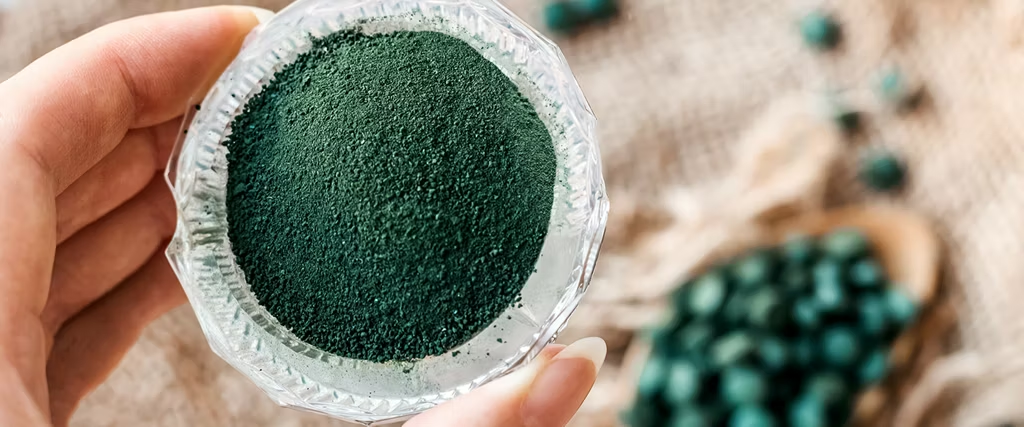Are you searching for a natural way to boost your energy levels and support your overall wellbeing? You’re not alone. Many Australians are turning to nutrient-dense superfoods to bridge the gap between their busy lifestyles and optimal health. Among these powerful foods, spirulina stands out as one of nature’s most complete nutritional sources.
Spirulina is a blue-green algae that has been consumed for centuries, yet it’s only recently gained recognition as a modern superfood. This microscopic powerhouse contains an impressive array of vitamins, minerals, and protein that can support your health goals in ways you might not have imagined.
Throughout this guide, we’ll explore everything you need to know about spirulina, from its remarkable nutritional profile to practical ways you can incorporate it into your daily routine. Whether you’re new to superfoods or looking to expand your nutritional toolkit, this comprehensive overview will help you understand why spirulina deserves a place in your wellness journey.
What Is Spirulina and Why Is It So Special?
Spirulina is a type of cyanobacteria, commonly known as blue-green algae, that grows naturally in alkaline lakes and ponds. Despite being microscopic, this ancient organism packs an extraordinary nutritional punch that has sustained communities for generations.
What makes spirulina truly remarkable is its complete amino acid profile. Unlike many plant-based foods, spirulina contains all eight essential amino acids your body cannot produce on its own. This makes it a complete protein source, containing approximately 60-70% protein by weight – more than most meat, fish, or poultry.
Australian-grown spirulina offers particular advantages due to our country’s pristine growing conditions and strict quality standards. The controlled cultivation process ensures consistent purity and potency, giving you confidence in every serving.
The Impressive Nutritional Profile of Spirulina
Understanding spirulina’s nutritional composition helps explain why health professionals and nutritionists recommend it so highly. Each serving delivers a concentrated dose of essential nutrients that would be difficult to obtain from multiple food sources.
Protein and Amino Acids
Spirulina’s protein content is truly exceptional. The complete amino acid profile supports muscle maintenance, tissue repair, and overall cellular function. For vegetarians and vegans, this represents a valuable protein source that rivals animal-based options.
Vitamins and Minerals
This superfood contains significant amounts of B-vitamins, particularly B12, which is often challenging for plant-based eaters to obtain. You’ll also find iron, magnesium, potassium, and manganese in meaningful quantities.
Antioxidants and Phytonutrients
The vibrant blue-green colour comes from powerful antioxidants like phycocyanin, which gives spirulina its distinctive appearance. These compounds help protect your cells from oxidative stress and support your body’s natural defence systems.
Health Benefits You Can Experience with Spirulina
The comprehensive nutritional profile of spirulina translates into tangible health benefits that many users notice within weeks of consistent use.
Enhanced Energy and Vitality
Many people report increased energy levels when they begin incorporating spirulina into their routine. The combination of complete proteins, B-vitamins, and iron supports natural energy production at the cellular level, helping you feel more vibrant throughout the day.
Immune System Support
The unique blend of antioxidants and phytonutrients in spirulina provides valuable support for your immune system. Regular consumption may help your body maintain its natural defences, particularly during times of stress or seasonal changes.
Digestive Health Benefits
Spirulina acts as a natural prebiotic, providing nourishment for beneficial gut bacteria. This support for your digestive system can have far-reaching effects on your overall health, as gut health influences everything from immune function to mood regulation.
Nutritional Support for Active Lifestyles
Athletes and fitness enthusiasts often choose spirulina for its protein content and nutrient density. The easily digestible protein supports muscle recovery, while the comprehensive vitamin and mineral profile helps meet the increased nutritional demands of an active lifestyle.
Simple Ways to Add Spirulina to Your Daily Routine
One of the most appealing aspects of spirulina is its versatility. You don’t need to completely overhaul your diet to experience its benefits – small additions can make a meaningful difference.
Morning Smoothie Boost
Start your day by adding one teaspoon of spirulina powder to your favourite smoothie recipe. The mild, slightly earthy flavour blends well with fruits like banana, mango, or berries. Green smoothies are particularly suitable, as the spirulina enhances both the nutritional value and vibrant colour.
Creative Kitchen Applications
Beyond smoothies, spirulina can enhance various recipes. Try mixing it into homemade energy balls, protein bars, or even pasta dough for a nutritional upgrade. A small amount goes a long way, so start with half a teaspoon and adjust according to your taste preferences.
Convenient Capsule Option
For those who prefer a more straightforward approach, spirulina capsules offer consistent dosing without the need to measure powder or consider taste preferences. This option works particularly well for busy schedules or travel.
Choosing Quality Australian Spirulina
Not all spirulina products are created equal, and understanding what to look for ensures you receive the full benefits this superfood can offer.
Purity and Processing Standards
Quality spirulina should be free from contaminants and processed using methods that preserve its nutritional integrity. Australian-grown spirulina benefits from strict agricultural standards and controlled growing environments that minimise the risk of contamination.
Organic Certification
Choosing organic spirulina provides additional assurance about growing methods and processing standards. This certification indicates that the product meets rigorous requirements for purity and sustainability.
Packaging and Storage
Proper packaging protects spirulina’s nutritional content from light and moisture. Look for products stored in dark, airtight containers and always follow storage recommendations to maintain freshness and potency.
Understanding Dosage and Getting Started
Starting with spirulina is straightforward, but understanding proper dosing helps you achieve the best results while allowing your body to adjust gradually.
Most nutritionists recommend beginning with a small amount – approximately half a teaspoon of powder or one to two capsules daily. You can gradually increase this amount as your body adapts, with many people settling on one to two teaspoons of powder daily or the equivalent in capsules.
Taking spirulina with meals can help minimise any initial digestive adjustment and improve absorption of its nutrients. Many people find that consistent daily use provides the most noticeable benefits over time.
Your Next Steps Toward Better Nutrition
Spirulina is more than just a supplement – it’s a powerful way to explore how nutrient-dense foods can support your health goals. With its comprehensive nutritional profile, versatility, and ease of use, it’s an excellent addition to any wellness routine.
The key to better nutrition is consistency, not perfection. Start small, find simple ways to incorporate spirulina into your lifestyle, and notice how your body responds. Ready to get started? Check out Puresia’s premium spirulina products and make it a cornerstone of your daily wellness routine today!



